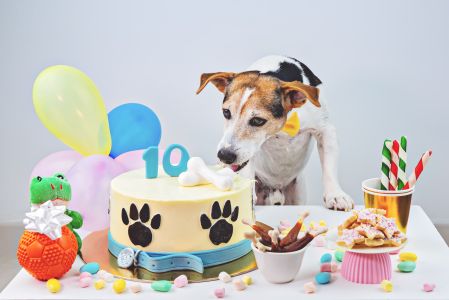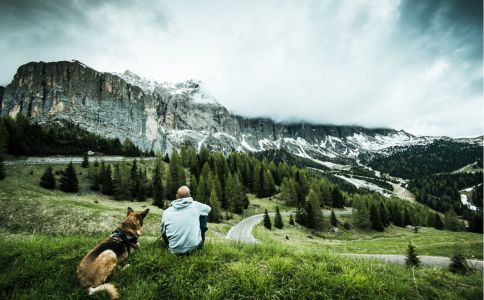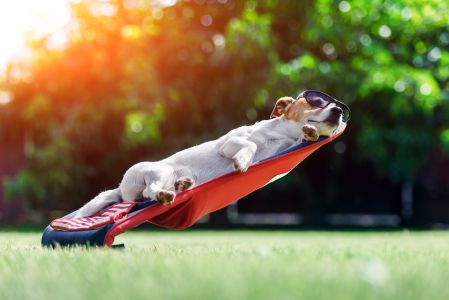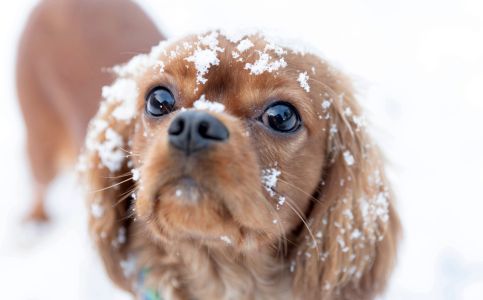Puppy guide part 1 - Tips for your puppy's move in
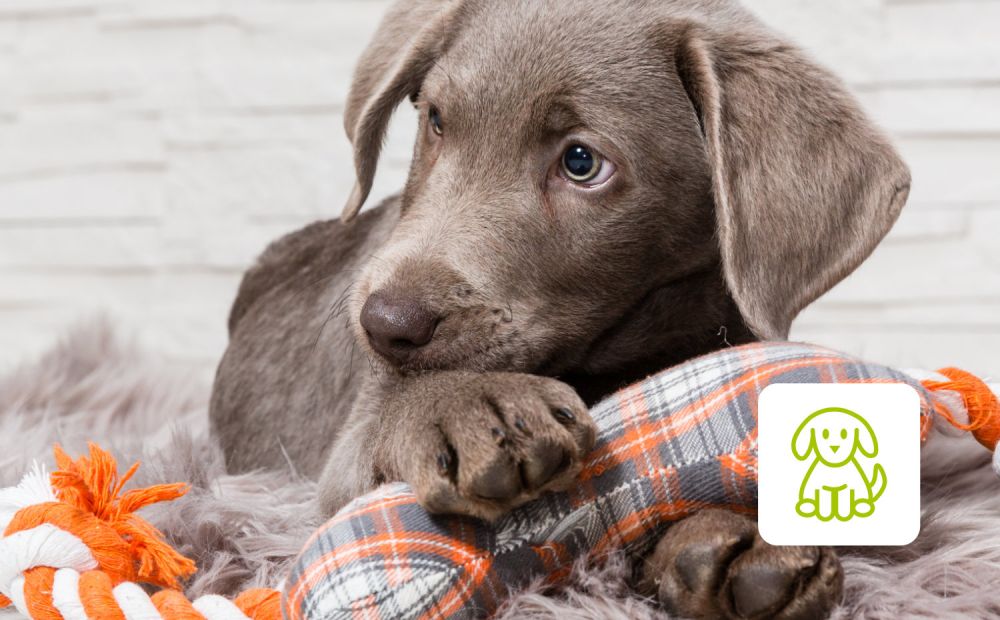
22.01.2021
Even before a puppy moves in with you, there are a few things to be clarified and taken care of. As well as the equipment, you'll need to think about how your dog should be fed, what training measures are important and important questions reagarding its health. This is very important, because your puppy's wellbeing is in your hands! So, to make this exciting time a little easier, we'd like to share some tips and tricks with you.
Choosing your new family member
Maybe the arrival of a new puppy is not yet concrete. But you should be aware that a puppy means a lot of work and will accompany you for many years to come. In one of our previous blog entries, we've provided you with a wealth of tips on how to find your dog. So be sure to check it out if you're looking for a new family member. As a general rule, you should visit your new puppy a few times before its moving in to help him get used to you. It's important that you can ensure that your dog is well looked after at all times. We've also prepared a helpful blog entry for you on this subject.
Safety first
Before your puppy moves in with you, you should ensure that your home is puppy-safe. Stairs or open balconies are particularly dangerous for your little puppy, so make sure to secure them. In general, you should keep in mind that your puppy will explore everything it can reach. In other words, things that are important to you should not be kept at puppy height. It's not uncommon for puppies to feel a particular "destructive urge" at first. Electrical cables and sockets can also be dangerous for your dog and should never be within your puppy's reach.
The right initial equipment
Your puppy should not be without a suitable equipment. It's best to get comprehensive advice on all important points. As far as nutrition is concerned, you should bear in mind that there are special foods for puppies. The best thing to do is to ask your vet for advice. We also have a blog entry discussing different nutrition methods for dogs.
The following things are suitable for a puppy's initial stocking:
- A collar, possibly a harness and a leash: It's important to be able to "grab" your dog quickly if he's not housebroken in the early days. As it will certainly not obey your every command in the beginning and may be afraid of the exciting outside world, a leash is essential.
- A dog box: The dog box is very practical if you have to transport your dog, e.g. on the way to the vet. On the other hand, it can also serve you well if you want to get your dog house-trained.
- A dog bed: It is important for a dog to have a place of retreat. This can also help him in exciting situations, e.g. when strangers come to visit and he needs to calm down.
- A food and water bowl: Logically, a puppy needs some sort of container to eat and drink. There even exist special bowls for puppies. However, you should always make sure that the bowl's height and size make it easily accessible for a small puppy.
- Suitable food: What would a bowl be without food? In general, you should think about what kind of food you want to feed your dog. This blog post is a good place to get an overview. However, you should slowly get your dog used to new foods. For example, if your puppy was given a certain type of dry food in his previous home, and you want to give him a different type of food, you should slowly mix a little more of the new dry food into the current food.
- Toys: Especially in the early days, your puppy will use his teeth for everything. The need to chew will be immense! So give him plenty of opportunities to let his chewing attacks run wild. Toys are also a great enrichment for playtime between dog and human!
- Treats, brush, dog shampoo, excrement bag and tick tweezers: not the most important utensils, but certainly helpful. The use of treats is somewhat controversial, but we ourselves, as dog owners, can confirm that treats can "sweeten" the getting to know each other, especially in the beginning.
The veterinary search
It's best to find a vet before the puppy arrives, because you'll be there many times, especially in the beginning. Whether it's for vaccinations or for the first illness - you have to be very careful with puppies, because even diarrhoea could be dangerous for such a small and young creature. It's best to ask friends and acquaintances who also own a dog for advice. Often, personal experience with vets is worth a lot. And it is important that you and your dog feel that you are in good hands.
The search for your puppy's name
Of course this does not necessarily have to be done before the puppy moves in. However, it is still a good idea. If you are in close contact with the previous owner of your puppy, it can already start your puppy to get used to his name. It can sometimes be a long process until a puppy associates the name with itself. We can also tell you from experience that it makes the anticipation even greater when the new family member has its own name.
As you can see, there are a number of arrangements to be made before the new family member finally moves in. Our next blog post will be about what to look out for when your puppy finally moves in.
